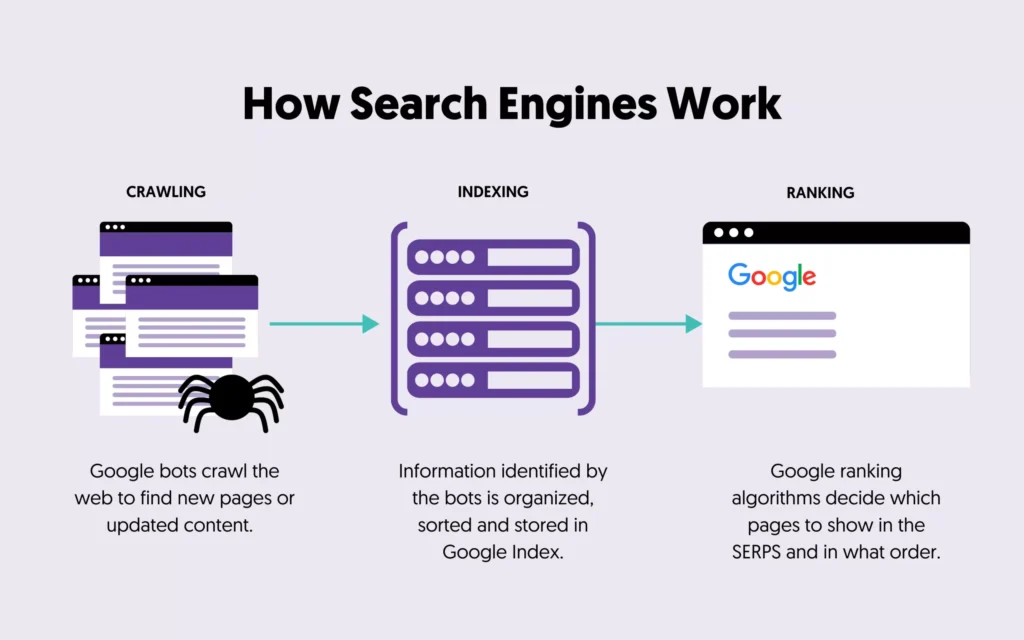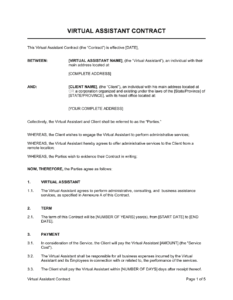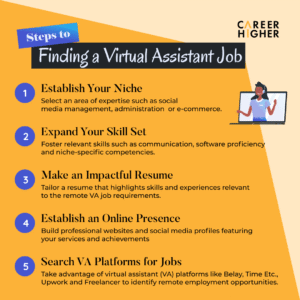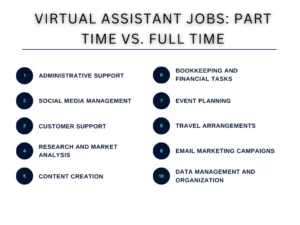Search engines are essential tools for the internet. They help us find information quickly.
But how do these complex systems work? To understand search engines, we need to look at their basic functions. Search engines like Google and Bing crawl the web, index content, and rank pages. This process happens in milliseconds. It’s fascinating to see how they deliver the most relevant results.
Knowing how search engines work can help you create better content and improve your website’s visibility. Let’s dive deeper into the world of search engines and uncover the magic behind their operations.
Introduction To Search Engines
Search engines are essential tools in our digital world. They help users find information quickly and efficiently. Understanding how they work can enhance your online experience.
The Evolution Of Search Engines
In the early days, search engines were simple and limited. They matched keywords to web pages. The results were often irrelevant. Over time, search engines evolved. They became more sophisticated.
Modern search engines use complex algorithms. These algorithms consider many factors. They analyze content, user behavior, and other data. This ensures relevant and accurate search results. Popular search engines today include Google, Bing, and Yahoo.
Importance In The Digital Age
Search engines play a crucial role today. They connect users to vast amounts of information. Businesses rely on them to attract customers. Individuals use them for research and learning.
Effective use of search engines can boost online visibility. They help drive traffic to websites. This makes them a key tool for digital marketing. Understanding their importance can benefit both individuals and businesses.
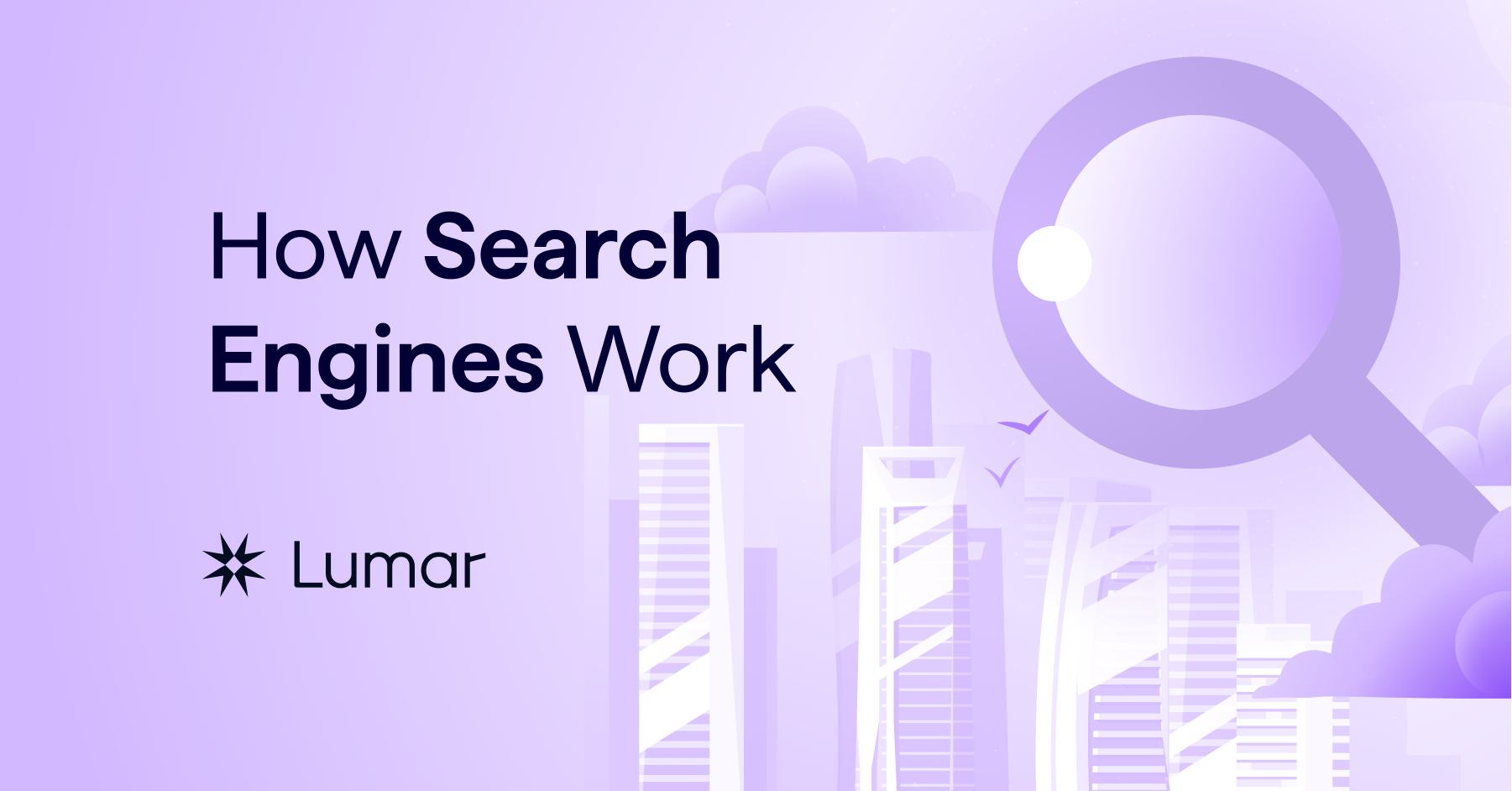
Credit: www.lumar.io
How Search Engines Operate
Understanding how search engines operate is crucial for optimizing your website. This process involves several complex steps, but we’ll break it down into simple terms.
Crawling And Indexing
Search engines use crawlers, also known as spiders or bots, to scan the internet. These crawlers visit websites and read their content. They look at text, images, videos, and links. The crawlers collect this data to create an index.
Think of the index as a giant library. This library holds a copy of every web page the crawler finds. When you search for something, the search engine looks through this library to find the best match.
Indexing is the process of storing this data. The search engine organizes the data by keywords and topics. This helps it quickly find relevant information when someone searches.
Algorithms And Ranking
Search engines use algorithms to determine how pages rank. These algorithms are complex formulas. They look at many factors to decide which pages show up first.
Here are some key factors that affect ranking:
- Keyword Relevance: How well the page matches the search query.
- Content Quality: Is the content valuable and informative?
- Backlinks: Are other websites linking to this page?
- User Experience: Is the website easy to use and navigate?
- Mobile-Friendliness: Does the site work well on mobile devices?
The algorithms analyze these factors to rank the pages. The goal is to show the most relevant and useful pages first.
Search engines continuously update their algorithms. This ensures the best results for user searches. So, keeping up with these changes is important for SEO.
Key Components Of Search Engines
Search engines are vital for finding information online. They help users discover relevant content quickly. Understanding their key components can improve your website’s visibility. Let’s delve into the core parts of search engines.
Web Crawlers
Web crawlers, also known as spiders or bots, are programs that browse the internet. They visit web pages and collect data. This data includes text, images, and links. Crawlers follow links from one page to another, building a vast database. They ensure search engines have up-to-date content.
Search Index
The search index is a massive database. It stores all the information collected by web crawlers. Think of it as a library. Each web page is a book. The index helps search engines retrieve and display relevant results. It organizes information for quick access.
Ranking Algorithms
Ranking algorithms determine the order of search results. They use complex formulas to evaluate web pages. Factors include keywords, page quality, and user experience. Algorithms aim to show the most relevant and useful results first. They constantly evolve to improve accuracy and fairness.
Types Of Search Engines
Search engines are essential tools for finding information on the web. They help users locate relevant content quickly and efficiently. There are various types of search engines, each serving a different purpose. Understanding these types can help you use them more effectively.
General Search Engines
General search engines are the most common type. They index a vast amount of content across the internet. These engines use complex algorithms to rank and present search results.
- Bing
- Yahoo
Users can search for almost anything on these platforms. They provide a wide range of results, including websites, images, and videos.
Vertical Search Engines
Vertical search engines specialize in a specific area of content. They focus on a particular niche, making them useful for targeted searches.
- Indeed (jobs)
- Zillow (real estate)
- TripAdvisor (travel)
These engines offer more precise results within their domain. They are valuable for users with specific needs.
Metasearch Engines
Metasearch engines do not have their own index. Instead, they compile results from multiple other search engines.
- Dogpile
- MetaCrawler
- WebCrawler
These engines provide a broader view by combining results from various sources. They help users compare information from different places.
Search Engine Optimization (seo)
Search Engine Optimization (SEO) is a crucial part of digital marketing. It helps websites rank higher in search engine results. Understanding SEO can make your website more visible to users. This increases traffic and potential revenue.
On-page Seo
On-Page SEO focuses on optimizing parts of your website that you control. This includes content, meta tags, and images. High-quality content is key. Use relevant keywords naturally in your text. Each page needs a unique title tag and meta description. This helps search engines understand your content.
Images should have descriptive alt text. This aids search engines and improves accessibility. Internal linking also plays a role. Link to other pages on your site. This helps users and search engines navigate your site better.
Off-page Seo
Off-Page SEO involves activities outside your website. The goal is to build backlinks from other websites. High-quality backlinks improve your site’s authority. This makes search engines trust your site more.
Guest blogging is a popular method. Write for other sites in your niche. This earns you a backlink. Social media also impacts Off-Page SEO. Share your content on social platforms. This drives traffic and can lead to more backlinks.
Technical Seo
Technical SEO focuses on your website’s backend. This ensures search engines can crawl and index your site. A fast-loading site is crucial. Use tools to check your page speed. Compress images and minimize code to improve load times.
Mobile-friendliness is also important. Many users browse on mobile devices. Make sure your site is responsive. Use a mobile-friendly design and test it on various devices. Secure your site with HTTPS. This builds trust with users and search engines.
A well-structured site map helps search engines. Create and submit a site map to search engines. This improves crawling and indexing. Fix broken links and ensure a clean URL structure. This makes your site easier to navigate.

Credit: www.geeksforgeeks.org
Challenges Faced By Search Engines
Search engines have become an essential part of our daily lives. But they face several challenges in delivering accurate and relevant results. These challenges include dealing with spam, indexing the deep web, and handling user privacy.
Spam And Black Hat Seo
Spam and Black Hat SEO tactics are a significant problem for search engines. These tactics aim to manipulate search rankings using unethical methods. Common Black Hat techniques include:
- Keyword stuffing
- Link schemes
- Hidden text
These practices harm the user experience. They clutter search results with low-quality content. Search engines must constantly update their algorithms to combat these tactics.
Indexing The Deep Web
The deep web contains vast amounts of information not accessible through standard search engines. This includes:
- Private databases
- Subscription-based content
- Non-HTML content
Indexing this hidden information is challenging. It requires advanced crawling technologies. These technologies must navigate complex structures to retrieve valuable data.
Handling User Privacy
User privacy is a critical concern for search engines. They collect vast amounts of personal data. This data helps improve search results and user experience. But it also raises privacy issues.
Search engines must balance data collection with user privacy. They need to ensure compliance with regulations like GDPR. Protecting user data from breaches is another challenge. This requires robust security measures and constant monitoring.
Future Of Search Engines
Search engines are evolving rapidly. The future promises exciting changes. From AI and machine learning to voice and visual search, these advancements will reshape how we find information online. Let’s delve into these key areas shaping the future of search engines.
Ai And Machine Learning
AI and machine learning are transforming search engines. They help search engines understand user queries better. This leads to more accurate and relevant results. AI-driven algorithms learn from user behavior. They analyze what users click on and how long they stay on a page. This data helps improve search results.
Here’s how AI and machine learning impact search engines:
- Better understanding of natural language
- Improved relevance of search results
- Enhanced ability to predict user intent
Voice And Visual Search
Voice and visual search are gaining popularity. People use voice assistants like Siri and Alexa. They ask questions instead of typing them. This trend requires search engines to adapt. They need to understand spoken language and context.
Visual search is also on the rise. Users can search using images. They upload a photo and get related results. For example, searching for a product by taking its picture. This method is becoming more common and requires advanced algorithms.
Key points about voice and visual search:
- Voice search requires understanding spoken language
- Visual search needs image recognition technology
- Both methods enhance user convenience
Personalization And User Experience
Search engines are focusing on personalization. They aim to provide a tailored experience. Personalization involves showing results based on user preferences and past behavior. This means each user gets unique results. For example, two people searching for the same term may see different results.
Improving user experience is crucial. Search engines strive to make the process smooth and efficient. Fast loading times and easy navigation are key factors. A pleasant user experience keeps people coming back.
Important aspects of personalization and user experience:
- Customized search results
- Fast loading times
- Easy-to-use interfaces
Impact On Businesses
The impact of search engines on businesses is profound. Search engines drive traffic and sales. They influence marketing strategies and customer engagement. Understanding their workings is crucial for success.
Digital Marketing Strategies
Search engines shape digital marketing strategies. Marketers use SEO to rank higher. Higher rankings mean more visibility. More visibility leads to more traffic and sales. PPC (Pay-Per-Click) campaigns target specific keywords. This boosts website visits and conversions.
Here’s a comparison of SEO and PPC:
| SEO | PPC |
|---|---|
| Organic traffic | Paid traffic |
| Long-term results | Immediate results |
| Cost-effective | Can be expensive |
E-commerce And Search Engines
Search engines are vital for e-commerce. Online stores rely on search visibility. Good SEO practices lead to higher rankings. Higher rankings mean more potential customers. Product descriptions and images should be optimized. This helps in better indexing by search engines.
Key factors for e-commerce SEO:
- Quality product descriptions
- Optimized images
- User-friendly website design
- Mobile optimization
- Fast loading times
Local Search And Small Businesses
Local search is crucial for small businesses. Customers often search for local services. Appearing in local search results increases foot traffic. Small businesses should focus on local SEO. This includes optimizing Google My Business profiles. Customer reviews and local keywords are also important.
Steps for improving local SEO:
- Claim and optimize Google My Business
- Encourage customer reviews
- Use local keywords
- Ensure NAP (Name, Address, Phone) consistency
- Create locally relevant content
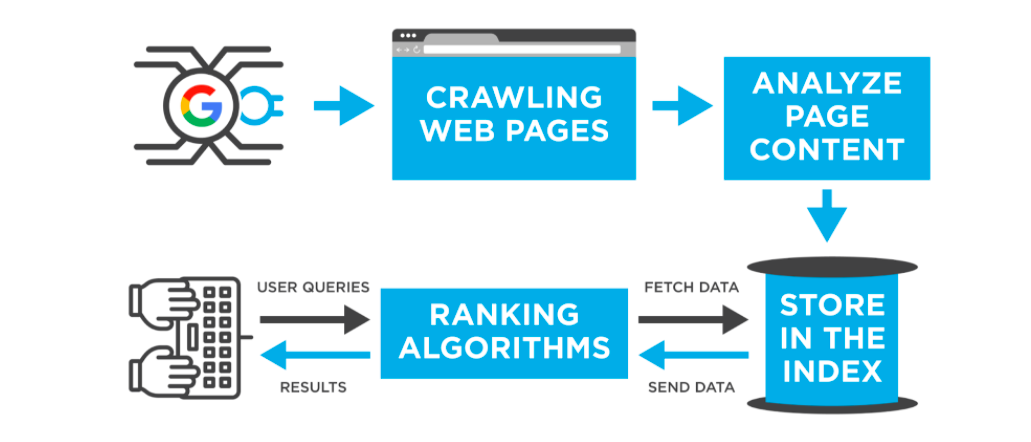
Credit: jellymarketing.ca
Frequently Asked Questions
How Do Search Engines Work?
Search engines use algorithms to crawl, index, and rank web pages. They analyze content, keywords, and links to provide relevant results.
What Is Search Engine Crawling?
Crawling is the process where search engines send bots to discover new or updated content on the web.
What Is Search Engine Indexing?
Indexing is when search engines store and organize content found during crawling. This allows for quick retrieval during searches.
Why Is Search Engine Ranking Important?
Ranking determines the order of search results. Higher ranking increases visibility, driving more traffic to your website.
Conclusion
Understanding how search engines work is crucial for online success. They crawl, index, and rank web pages. Following best practices can improve your website’s visibility. Keep content relevant and user-friendly. Use keywords wisely and naturally. Regularly update your site to stay current.
By knowing these basics, you can help your website perform better on search engines. This knowledge helps attract more visitors and grow your online presence.
Ms.Sultana brings over 16 years of expertise working with global Clients by providing different skills and Services. For the last 5 years working as an Affiliate marketer, specializing in high-ticket campaigns that drive exponential growth. She holds a degree in Computer Science and Engineering as well as achieved many more skills certificates from different institute/academies/Platform. As part of the Elite Global Marketing team, Sultana has helped clients generate millions in revenue through strategic partnerships, innovative funnels, and data-driven insights.

